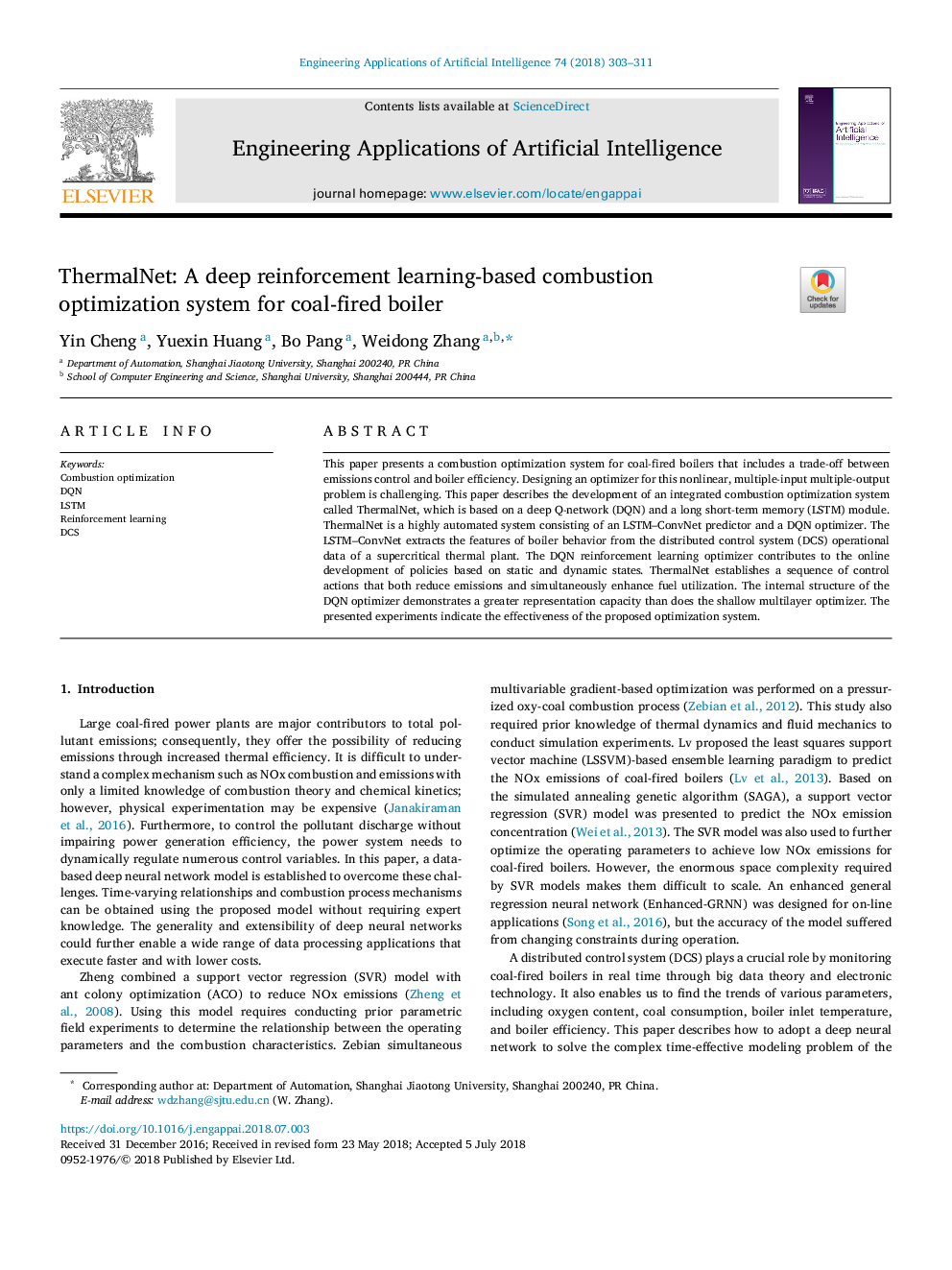| Article ID | Journal | Published Year | Pages | File Type |
|---|---|---|---|---|
| 6854144 | Engineering Applications of Artificial Intelligence | 2018 | 9 Pages |
Abstract
This paper presents a combustion optimization system for coal-fired boilers that includes a trade-off between emissions control and boiler efficiency. Designing an optimizer for this nonlinear, multiple-input multiple-output problem is challenging. This paper describes the development of an integrated combustion optimization system called ThermalNet, which is based on a deep Q-network (DQN) and a long short-term memory (LSTM) module. ThermalNet is a highly automated system consisting of an LSTM-ConvNet predictor and a DQN optimizer. The LSTM-ConvNet extracts the features of boiler behavior from the distributed control system (DCS) operational data of a supercritical thermal plant. The DQN reinforcement learning optimizer contributes to the online development of policies based on static and dynamic states. ThermalNet establishes a sequence of control actions that both reduce emissions and simultaneously enhance fuel utilization. The internal structure of the DQN optimizer demonstrates a greater representation capacity than does the shallow multilayer optimizer. The presented experiments indicate the effectiveness of the proposed optimization system.
Related Topics
Physical Sciences and Engineering
Computer Science
Artificial Intelligence
Authors
Yin Cheng, Yuexin Huang, Bo Pang, Weidong Zhang,
